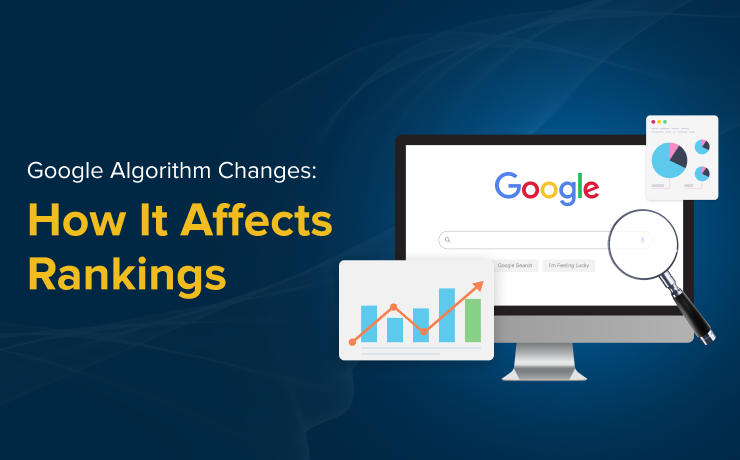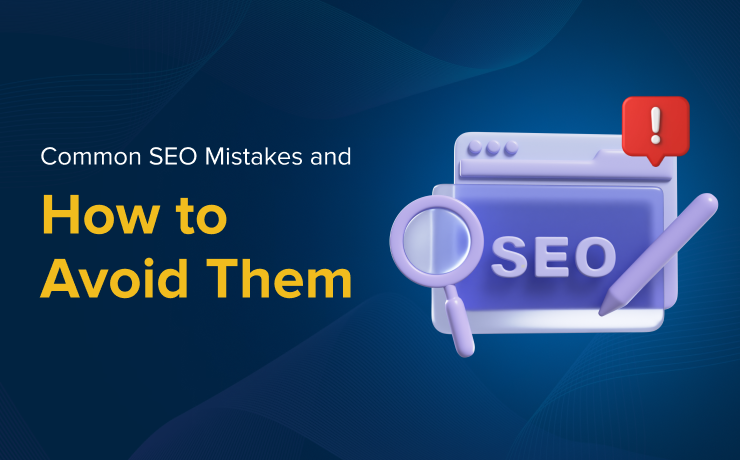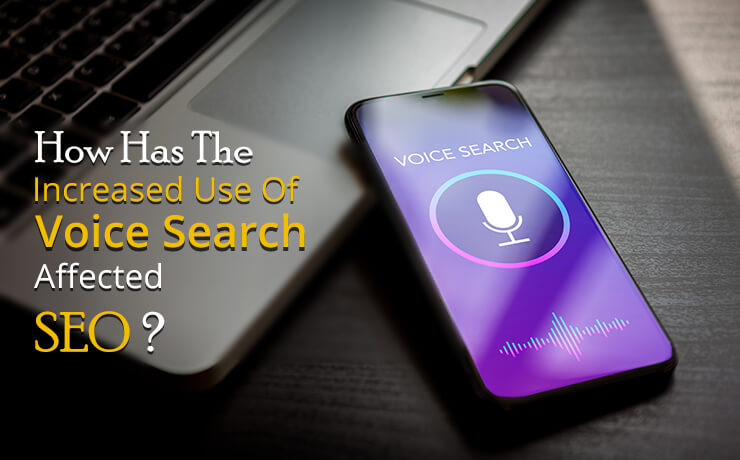
Google is all about the users before anything else. The Google algorithm changes aim to refine how search results are ranked and presented.
These updates can significantly impact your overall SEO strategy and website’s visibility, either boosting it to the top or pushing it down in the rankings.
The question on everyone’s mind is, “Where will my website fall?” While there is no way to 100% predict an exact outcome, there are options to help you make a fairly accurate assessment.
Below are several Google algorithm updates that have occurred and their outcomes:
Panda (2011):
- Targeted: Low-quality, thin content, and content farms.
- Outcome: Websites with high-quality, original content saw a boost in rankings. Sites with low-quality content suffered.
Penguin (2012):
- Targeted: Link spam and manipulative link-building
- Outcome: Websites with natural and relevant backlink profiles were rewarded, while those with spammy or manipulative links were penalized.
Hummingbird (2013):
- Targeted: Improving semantic search and understanding user intent.
- Outcome: Websites with content that matched user intent and used natural language saw improved rankings.
Mobile-Friendly Update (2015):
- Targeted: Websites not optimized for mobile devices.
- Outcome: Mobile-friendly websites were given a ranking boost in mobile search results.
RankBrain (2015):
- Targeted: Incorporating machine learning to understand search queries better.
- Outcome: Websites with relevant and high-quality content were rewarded, even if they didn’t perfectly match the exact keywords used in a search.
BERT (2019):
- Targeted: Improving understanding of natural language processing (NLP) in search queries.
- Outcome: Websites with content that was well-written and used natural language saw improved rankings, especially for longer and more conversational queries.
Core Updates (Ongoing):
- Targeted: Broad updates aimed at improving search quality overall.
- Outcome: Websites that consistently provide high-quality, relevant, and user-friendly content tend to benefit from these updates, while those that don’t may see fluctuations in rankings.
Spam Updates (Ongoing):
- Targeted: Combatting various forms of spam, including link spam, content spam, and cloaking.
- Outcome: Websites that engage in spammy practices are penalized, while those that adhere to ethical SEO practices are rewarded.
Product Reviews Update (2021-present):
- Targeted: Prioritizing high-quality, in-depth product reviews.
- Outcome: Websites with comprehensive and informative product reviews saw improved rankings in product-related searches.
Helpful Content Update (2022-present):
- Targeted: Prioritizing people-first content over content primarily created for search engine rankings.
- Outcome: Websites with helpful, informative, and engaging content saw improved rankings, while those with thin or unhelpful content were demoted.
How Google Assesses Your Website
Google’s algorithms consider numerous factors when evaluating webpages and you should consider these factors too:
- Content Quality: Is your content informative, valuable, and engaging for users?
- Backlinks: Are any reputable websites linking to your content, indicating its authority?
- Freshness: Is your content up-to-date or contains info from years ago that might not be relevant today?
- Internal Links: Can users easily navigate through your website and its pages through links?
- User Experience: Is your site easy to navigate, mobile-friendly, and fast-loading?
- Duplicate Content: Is your content original and unique?
- Page Speed: Does your site load quickly on both desktop and mobile devices?
These are just a few of the elements that Google’s intricate algorithm considers.
The Impact of Algorithm Changes on SEO
Algorithm updates can significantly impact your SEO performance, with effects ranging from positive to negative, depending on your adherence to best practices:
Positive Impact:
- Rewarding Quality: If your website prioritizes high-quality, user-focused content and adheres to technical SEO standards, Google algorithm changes can boost your rankings.
- Enhanced User Experience: Websites that prioritize user experience (fast loading times, mobile responsiveness, and clear navigation) are favored by Google’s updates.
- Relevant Content: By focusing on providing relevant and informative content that aligns with search intent, you’re more likely to benefit from algorithm changes.
- Authority Recognition: The best way to gain authority for your website is through backlinks. They help enhance domain authority. And for those who know, this is not easy at all. Websites that build a strong online presence with credible links and endorsements are likely to see improvements in rankings when a Google update rolls out.
- Long-Term Growth: Positive SEO outcomes from updates often lead to sustainable growth in organic traffic and visibility. By consistently delivering valuable content, optimizing user experience, and adhering to SEO best practices, websites can maintain and even improve their rankings over time.
If your website falls under any of the categories mentioned above, you should welcome Google updates. If your hard work and dedication to these best practices haven’t been recognized before, chances are they will be with the next Google algorithm update.
Negative Impact:
- Penalizing Outdated Tactics: Google updates frequently combat manipulative SEO tactics such as keyword stuffing, link schemes, and cloaking. Websites that use these practices risk penalties or even removal from search results, leading to traffic loss.
- Penalizing Low-Quality Content: Google updates often target websites that publish thin, irrelevant, or duplicate content. Such sites may experience a drop in rankings if their content fails to provide value or meet user intent.
- Impact on Mobile-Friendly Sites: Google updates prioritize mobile usability, penalizing websites that are not optimized for mobile devices. Sites with poor mobile experiences may see decreased visibility in mobile search results. This happens because most searchers (50.48%) use their mobile devices compared to 46.51% using their desktops
- Algorithmic Changes in Ranking Factors: Updates may alter how ranking factors are weighted, affecting websites that do not adjust their SEO strategies accordingly. Websites constantly have to stay up to date with their SEO best practices
- Negative Backlink Profiles: Google updates scrutinize sites that previously benefited from manipulative link-building tactics, like spammy or unnatural links could see a decline in rankings as these links are devalued.
- Adverse User Experience Metrics: Updates prioritize user experience metrics such as page speed, site security, etc. Websites that fail to meet these standards may face lower rankings as Google aims to enhance user satisfaction.
We know ourselves best. If your website falls into any of the categories above, then you’re right to be concerned, even a little scared, whenever a Google algorithm update happens.
Adapting to the Ever-Changing Landscape
Staying ahead of Google’s algorithm changes is vital for maintaining and improving your search rankings:
- Stay Informed: Google doesn’t always announce every algorithm update, but they do provide insights on their blog and through official channels. Following reputable SEO news sources, blogs, and industry experts can help you stay ahead of the curve. Understanding the nature of each update and its potential impact on your website allows you to proactively adapt your strategy.
- Focus on Quality Content: High-quality content remains a cornerstone of SEO success. Google’s algorithms are increasingly sophisticated at recognizing valuable, informative, and engaging content that genuinely satisfies user intent. Invest time in creating original, well-researched articles, blog posts, videos, or other forms of content that resonate with your target audience and provide them with the information they seek.
- Optimize for User Experience: A positive user experience is paramount to Google’s ranking factors. Ensure your website loads quickly, is easy to navigate, and is visually appealing across all devices. Optimize images, use clear calls to action, and provide a seamless user journey to keep visitors engaged and satisfied.
- Avoid Black-Hat SEO: Black-hat SEO tactics, such as keyword stuffing, buying links, or cloaking, might offer short-term gains, but they inevitably lead to penalties and long-term damage to your website’s reputation. Focus on white-hat SEO techniques, which align with Google’s guidelines and focus on providing genuine value to users. This includes building natural backlinks, creating high-quality content, and optimizing your website for technical SEO elements.
- Monitor Your Performance: Regularly track your website’s rankings, traffic, and other key metrics using tools like Google Analytics and Google Search Console. This allows you to identify any sudden changes that might be due to an algorithm update and take necessary action. If you notice a drop in rankings or traffic, investigate the potential causes and adjust your SEO strategy accordingly. By closely monitoring your performance, you can quickly adapt to any changes and maintain your website’s visibility in search results.
By understanding the mechanics of Google’s algorithms and adapting your SEO strategy to their ever-changing nature, you can ensure your website remains visible, competitive, and successful in attracting organic traffic.
Remember: Google’s ultimate goal is to deliver the best possible results to its users. By prioritizing user experience and providing valuable content, you’ll be well-positioned to thrive in the dynamic world of SEO.
 Free
Consultation
Free
Consultation Free
Google Ads Audit
Free
Google Ads Audit








